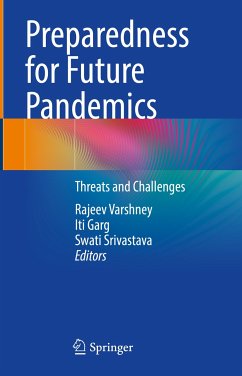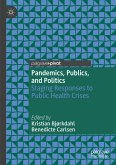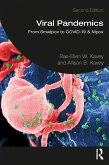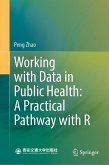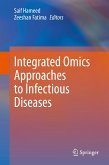The book mainly comprehends on identification and fulfilment of gaps in pandemic preparedness, the development of an effective early warning system, the strengthening of existing strategies as well as the need for the implementation of new global policies to mitigate future pandemics. It focuses on the role of omics approaches to understand and explore the newer and faster mechanisms for prevention, detection, and response to emerging biological infections. It also covers the psychological impact due to pandemic and its solution.
The book has a broad scientific impact and shall be helpful specifically for academicians/ students having an interest in microbiology, virology, and immunology fields.
It is aligned with SDG 3, "Good Health and Well-being".
Dieser Download kann aus rechtlichen Gründen nur mit Rechnungsadresse in A, B, BG, CY, CZ, D, DK, EW, E, FIN, F, GR, HR, H, IRL, I, LT, L, LR, M, NL, PL, P, R, S, SLO, SK ausgeliefert werden.

